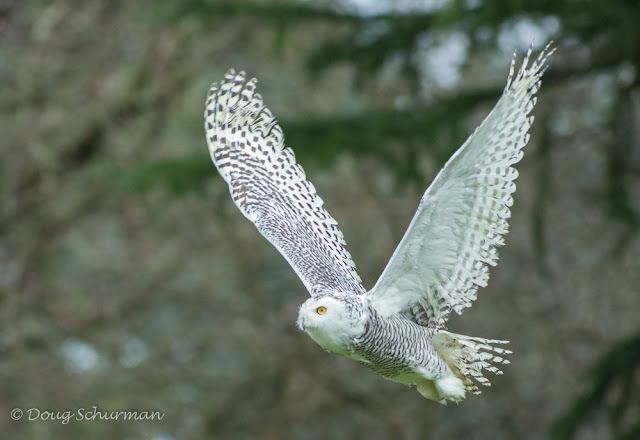Did you know that the gender of the PW is nearly as distinctive as their species? Surprisingly, there may be just enough information in this photo to determine whether this is a male or female bird. It may help to click on the photo to see a larger version.
Can you determine the gender? Assuming you cannot, lets take a look at two other photos where the differences are a bit more obvious. Here is a photo taken nearby, but in August.
Here is another photo of this week's bird.
Do you see differences in the two photos? Note: The lack of sunlight and green leaves in the second photo are differences but they do not count for our purposes. The most obvious difference is in the crests of the two birds. In the last photo the red crest completely covers the forehead, while in the previous photo the forehead is black. This indicates the summer bird is female, while the winter bird is male.
Going back to the first photo you will notice that the forehead is not visible so this method could not be used to determine the gender of the bird. So there must be another method. Look at the last two photos once more to see if you can find any other differences in the birds.
If not, here is a photo of a male PW taken in September that makes this second method much more obvious.
This photo clearly displays the male bird's red malar stripe. Malar is just a fancy way to say cheek. Now if you return to the very first photo you can see a small red spot just below the eye. However with the head upside down the red spot is just above the eye. Granted this was a very small gender hint, but for the avid birder I suspect it was like a red flag waving in the woods.
On a different note, Do you suppose that the physical and phonetical closeness of malar and molar is just coincidence?
Here is another interesting look at this week's bird.
This is most likely the only angle from which the malar stripes are visible on both sides of the head at once, possibly even more interesting is the sharpness of the beak. Especially when you consider how hard and often the bird buries its beak into a tree. If you take a look at the third photo you may notice that the beak does not appear quite so sharp when viewed from the side. The extra vertical depth must help strengthen the beak.
Though the next photo lacks beauty it is interesting to see the PW's slender tongue.
Finally, here are a couple of photos that have created a mystery for me. First of all here is a photo of a male bird seen last September.
The pattern of white feathers under the wings looks exactly like the painting in my field guide. However in this spring photo of a male bird leaving the nest the pattern looks very different.
Granted this poor photo was taken in very dim light, but still the trailing feathers seem light and the leading feathers under the wings seem dark. Maybe this is just an optical illusion caused by the angle, but I wonder if anyone else has seen a pattern like this on a PW.
Happy New Year!
Larry
Odds and Ends:
A parting shot.























































